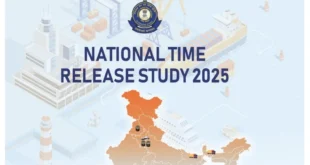RSS chief Mohan Bhagwat’s ‘moderate’ outreach is aimed at Hindu centrists
The Bharatiya Janata Party (BJP) will never sever its ideological ties with the Rashtriya Swayamsevak Sangh (RSS). But ever since the Narendra Modi government assumed office in 2014, the party has been rapidly metamorphosing into an entity no longer as dependent on the RSS network as it once was, or, indeed, as mindful of the latter’s leadership. The rapid expansion of the BJP organisation on the ground, the construction of modern party offices equipped with the latest communication tools, and a more centralised way of functioning with all party office-bearers answerable to party president Amit Shah and Mr. Modi has reduced the importance of the RSS in the BJP’s scheme of things. For the Modi-Shah duo that leads the BJP, this slight shift in balance is important because the desire to wield absolute power by winning as many elections as possible takes precedence over all else, whether it is the stated goal of development or the unstated one of the spread of Hindutva.
The RSS believes in the power of the collective, and is therefore uncomfortable with the cult status that Mr. Modi has acquired. It is also unhappy with the Modi-Shah duo’s strategy of seeking to isolate dominant Hindu castes to consolidate the rest against them: in Haryana, the BJP successfully united non-Jats against Jats; in Uttar Pradesh, non-Yadavs against Yadavs; in Gujarat, non-Patels against Patels. Now in Maharashtra, there appears to be an effort to bring together non-Marathas against Marathas. The BJP has adopted these tactics as its apex leadership has realised the limitations of working towards Hindu consolidation as its only electoral plan. The RSS, however, sees this as hampering Hindu unity, which has been its only goal since its founding in 1925. Nevertheless, the stakes for the RSS are just too high for it to work against the party that is its only ticket to achieving its ultimate goal of establishing a Hindu Rashtra in India, something the current BJP leadership is also happy to promote. Indeed, at the RSS conclave, Mr. Bhagwat urged his audience — largely RSS supporters — not to tap the NOTA button, but cast their votes, by implication, for the BJP.
A difficult election
The BJP leadership knows it will not be as easy a ride as it was in 2014. At the BJP National Executive earlier this month, Mr. Modi tried a new tack: “For 31 years we are in power in Gujarat. We have been able to do that because we are not greedy for power. We don’t seek power as an instrument of sitting on the chair, rather we seek power to work for the people.” He presented this as a contrast to the Opposition’s politics. For a government that claims success on all fronts, turning the spotlight on the Opposition may seem surprising. But the BJP knows a second term in power will depend largely on its ability to train the attention of voters on the contradictions in the Opposition, rather than on its own mixed record in office (including the Rafale controversy and discontent over rising fuel prices) and the rumblings within its ranks — for instance, upper caste rage against the government for having restored the Scheduled Castes and Scheduled Tribes (Prevention of Atrocities) Act to its original form. The BJP is also not taking lightly the Opposition’s success in by-elections in U.P., where parties earlier antagonistic to each other joined forces to defeat the BJP, thus projecting a template for 2019. Mr. Modi, of course, remains the larger-than-life figure who can be pitted successfully against the lesser mortals of the Opposition, and he is the BJP’s best bet to paper over the grievances, dissatisfactions and anger accumulated over the last four years. If the BJP retains the majority it won in the Lok Sabha in 2014, the road will be clear for Mr. Modi. But there is no saying what would happen if it does not: will the allies and the RSS then have a say in deciding on the next Prime Minister?
Smita Gupta is Senior Fellow, The Hindu Centre for Politics and Public Policy
Source : https://www.thehindu.com/todays-paper/tp-opinion/repositioning-the-sangh/article25000806.ece
 Chinmaya IAS Academy – Current Affairs Chinmaya IAS Academy – Current Affairs
Chinmaya IAS Academy – Current Affairs Chinmaya IAS Academy – Current Affairs


